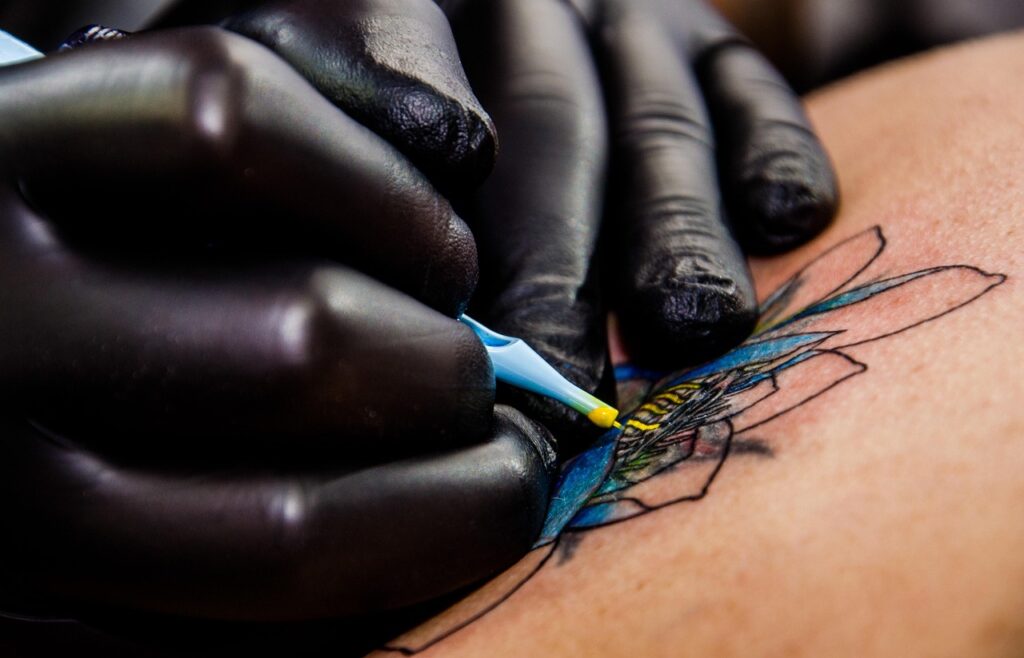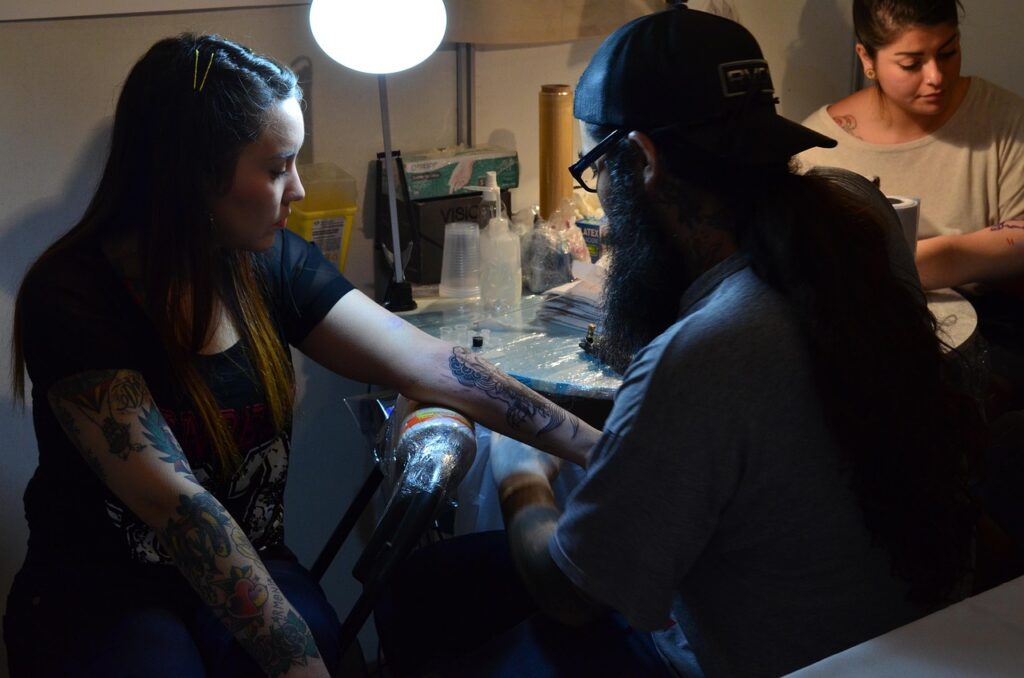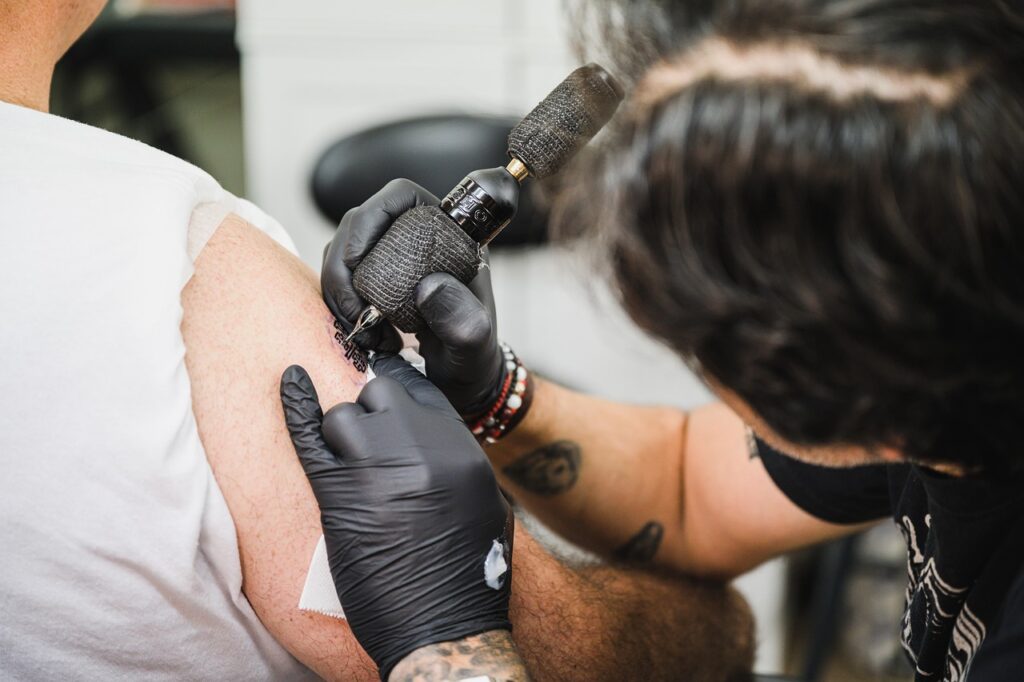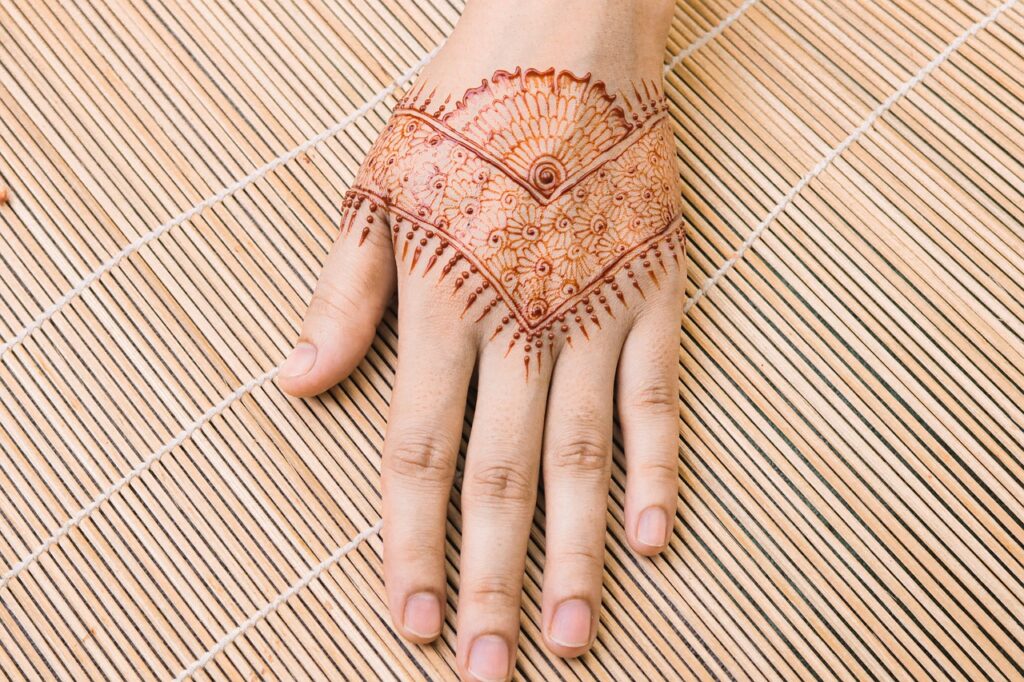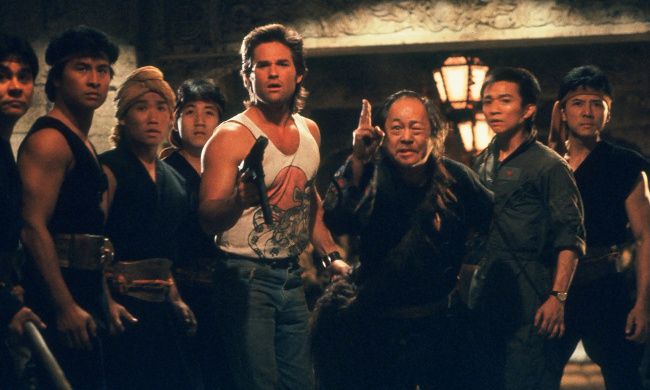
Ever felt that surge of excitement, that thrill of a new idea, especially one that’s going to be etched onto your skin forever? Getting a tattoo can feel like a major rite of passage, a way to mark a moment, express yourself, or simply embrace a cool design. The anticipation builds, you envision that perfect piece of art, and then… well, sometimes things don’t quite go according to plan. What if that perfect design turns into a not-so-perfect memory? What if that meaningful symbol becomes a source of, gulp, regret?
It turns out, you’re definitely not alone if you’ve had second thoughts about your ink. While tattoos are often considered permanent works of art, the journey isn’t always one of lasting satisfaction. In fact, one survey reported that a whopping 75 percent of 600 respondents admitted to regretting at least one of their tattoos. Another Harris Poll, surveying 2,225 U.S. adults, found similar sentiments among those with ink. It’s a common human experience, proving that even carefully considered decisions can, over years or decades, lead to a feeling of misalignment with our evolving selves.
So, why does this happen? The path from tattoo excitement to tattoo regret is paved with a complex mix of psychological, emotional, and practical factors. From impulsive decisions made in a moment of heightened emotion to designs that just don’t stand the test of time (or personal taste!), there are plenty of ways our body art can go from ‘love it!’ to ‘ugh.’ We’re about to dive into 14 of the biggest ink mistakes people make, exploring the common reasons why that once-cherished tattoo might become the one you’ll wish you could hide forever. Get ready, because we’re spilling the tea on all the tattoo regrets!
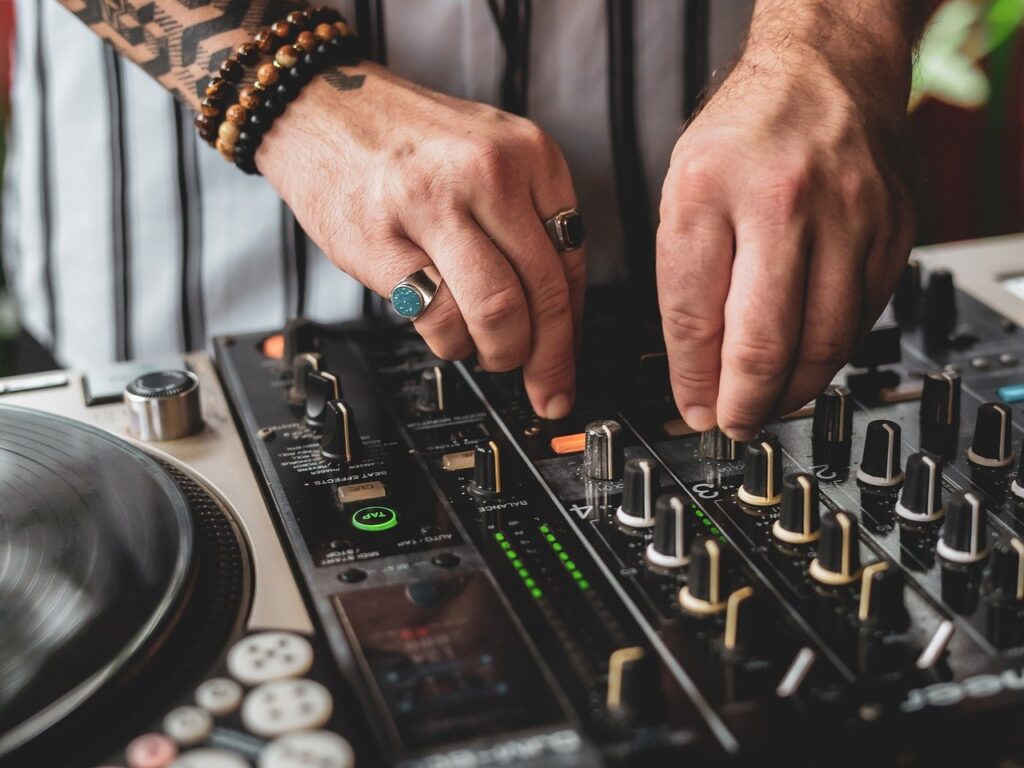
1. **Getting Inked When You’re Too Young**Ah, youth! It’s a time of big feelings, bold choices, and sometimes, decisions that don’t quite age like fine wine. One of the top reasons people find themselves in the tattoo regret club is simply being too young when they got their ink. The Harris Poll highlighted this, noting that many respondents felt they were just too young when they decided to go under the needle. It’s easy to get swept up in the moment, especially when you’re still figuring out who you are and what you truly love.
Take Dustin Tyler, for example. He shared, “The tattoo that I dislike the most is a tribal tattoo on my back that I got when I was 18. I am currently 33.” That’s 15 years of living with a design that no longer resonates with him. His experience isn’t unique; a significant number of participants in surveys about regret were teenagers to twentysomethings, with a staggering 78 percent regretting at least one of their tattoos. When you’re young, your tastes, your personality, and even your understanding of permanence are still developing.
The excitement of a first tattoo can be intoxicating, making it hard to think about how that same design will look or feel a decade or two down the line. What seems cool and edgy at 18 might just feel, well, a bit cringe at 33. The permanence of a tattoo means that while we grow and change, the ink stays put, often serving as a stark reminder of a past self that no longer aligns with our present identity. It’s a powerful lesson in considering the long-term implications before making a lifelong commitment to body art.
Read more about: 9 Movie Sequels Nobody Asked For (And Honestly, You Can Skip ‘Em)
2. **When Your Personality Shifts and Your Tattoo Doesn’t Keep Up**Ever looked back at old photos and wondered, ‘Who *was* that person?’ Our identities are like a constantly evolving playlist – what’s on heavy rotation today might be a forgotten b-side tomorrow. This natural evolution of self is another major culprit behind tattoo regret. The Harris Poll found that people often regret tattoos because their personality changed or the tattoo just doesn’t fit their present lifestyle. That’s a super relatable feeling, right?
As you grow and change, your values, beliefs, and even your aesthetic preferences can shift dramatically. A tattoo that once represented a rebellious phase, a past relationship, or a specific life philosophy might suddenly feel alien to your present self. This disconnect isn’t a reflection of poor judgment at the time; it’s simply a natural consequence of personal growth. The art that once resonated deeply might no longer fit the narrative of who you are becoming, leaving you with a piece that feels out of place with your current vibe.
What resonates deeply with a teenager or a young adult might not hold the same significance for someone in their thirties or fifties. Tattoos acquired during different life stages can become markers of who we *were*, rather than who we *are*. It’s a bittersweet reality: as individuals mature, their perspectives broaden, their experiences accumulate, and their core values may evolve, making older tattoos feel disconnected from their authentic, present selves. Your body is your canvas, and sometimes, the masterpiece needs an update to reflect the artist’s new vision.
Read more about: Unlock Culinary Magic: Simple Ingredient Swaps That Will Transform Your Home Cooking
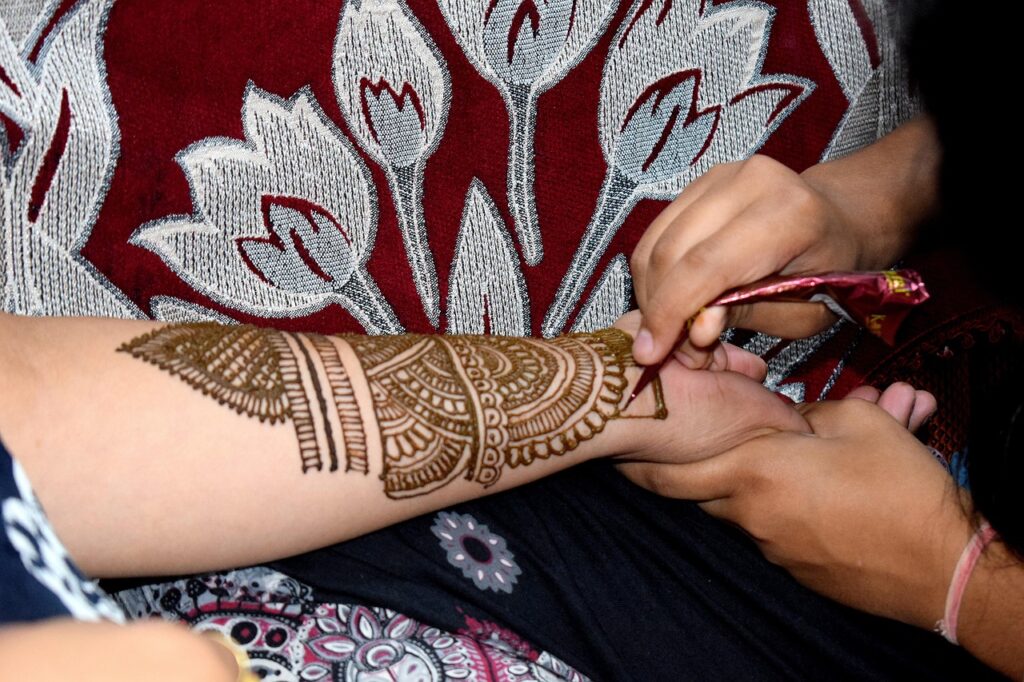
3. **Tattooing a Partner’s Name (The Ultimate ‘Tattooer’s Curse’)**Oh, young love! Or even not-so-young love, because let’s be real, love makes us do all sorts of wild things. But when it comes to tattoos, inking a partner’s name often tops the list of ‘things people regret.’ The Harris Poll explicitly stated that a common regret was getting someone’s name that they’re no longer with. It’s a classic cautionary tale, often whispered among tattoo artists themselves.
Max Brown of Brown Brothers Tattoos in Chicago knows this all too well. He warns against what he calls the “tattooer’s curse,” describing the hesitation he and other tattoo artists feel when asked to tattoo a lover’s name. It’s as if the act itself carries a jinx for the relationship! While it feels incredibly romantic and permanent in the moment, relationships, unfortunately, sometimes aren’t. And when they end, that beautiful declaration of love can turn into a painful, daily reminder of what once was.
Imagine looking down at your arm or leg, only to see the name of an ex-flame staring back at you. It’s not just a reminder of a past relationship; it can be a barrier to new ones, or simply a source of awkward conversations at the beach. This particular regret highlights how external factors and emotional intensity can lead to decisions that might not align with our long-term happiness once those emotions have faded or shifted. So, next time you’re feeling the love, maybe opt for matching friendship bracelets instead of matching tattoos!
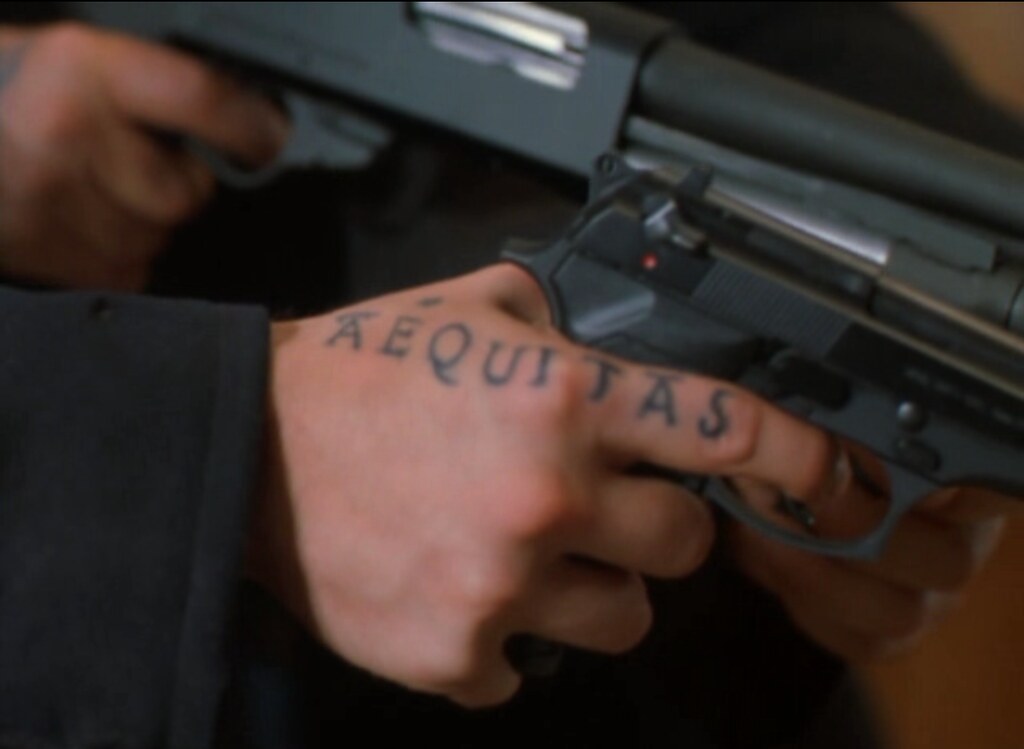
4. **When the Artwork is Poorly Done or Just Looks Unprofessional**Let’s be honest, we’ve all seen a tattoo (or maybe even have one ourselves) that just didn’t quite hit the mark. The Harris Poll found that a significant reason for regret was that the tattoo was poorly done or didn’t look professional. This isn’t about changing your mind about the meaning; it’s about the sheer quality of the artwork itself. A tattoo is a collaborative art form, and when the execution falls short, it can be a constant source of disappointment.
Javia Alissa, who boasts over 20 tattoos, has one prime example of this. She got an Aquarius symbol tattooed on her hip when she was 19. A year later, the regret kicked in when a classmate pointed out “that it looks like sperm (it was very badly done).” Yikes! To add insult to injury, she’s not even an Aquarius, but a Pisces. A poorly executed design can be frustrating and, as Javia’s story shows, can even lead to embarrassing social situations. It’s a stark reminder that the artist’s skill and style are paramount.
A talented artist can translate your ideas into a visually stunning piece of art that ages well and remains aesthetically pleasing. Conversely, a tattoo marred by poor line work, uneven shading, or a style that doesn’t match the client’s aesthetic can become a constant source of dissatisfaction. It doesn’t matter how deep the meaning behind the tattoo is if the visible result looks like a hastily drawn doodle from a high school notebook. Choosing a reputable artist with a strong portfolio is crucial for avoiding this particular pitfall.
5. **Lack of Meaning or Personal Significance**Beyond the aesthetics, tattoos are often chosen for their deep personal meaning, acting as symbols of significant life events, cherished memories, or personal beliefs. But what happens when that meaning isn’t really there, or worse, completely vanishes? The Harris Poll noted that tattoos simply ‘aren’t meaningful’ are a common source of regret. Sometimes, we get caught up in the idea of getting a tattoo, rather than truly connecting with *why* we’re getting it.
Our emotional state before getting a tattoo can significantly affect our regret level. Surveys show that ‘impulsive decision’ accounted for 35 percent of regrets, while tattoos chosen for ‘significant meaning’ still led to 29 percent of regrets, and the idea that it would ‘make them look cool’ accounted for 18 percent. When a tattoo is primarily chosen on a whim, or because it’s a trend, or just to impress others, it often lacks the foundational personal significance needed for long-term satisfaction. The lack of genuine connection can leave you with a beautiful (or not-so-beautiful) piece of art that simply feels hollow.
Tyler’s advice cuts right to the chase: “make sure you’re doing it for you and not because it’s a current style or trend.” This hits on the heart of meaningful ink. If a tattoo doesn’t genuinely speak to your soul, or if its meaning is fleeting, it’s far more likely to become a source of regret down the line. Tattoos are a form of self-expression, and they’re most fulfilling when they truly reflect your authentic self, rather than a passing fancy or external pressure.
Read more about: A Cultural Pillar: Why Malcolm-Jamal Warner’s Death Resonates So Deeply Within the Black Community, Especially for Gen X
6. **Choosing Regrettable Body Placements**Location, location, location! It’s not just for real estate; it’s a huge deal for tattoos, too. Where you decide to place your ink can seriously impact how you feel about it over time, and it’s another common source of regret. Max Brown, the veteran tattoo artist from Chicago, highlighted this, saying, “Certain areas just don’t heal as well as others.” He pointed out that finger tattoos, especially on the side, don’t typically heal well because the skin on the side and underside of hands and feet doesn’t respond well due to constant day-to-day activities.
Beyond healing issues, visibility and social perception play a huge role. A survey asked respondents about the most regrettable spots for a tattoo on the body, and the list included the upper back, upper arms, hips, face, and buttocks. Yep, the buttocks made the list! While a tattoo on your butt might seem fun and cheeky in the moment, imagine trying to explain that choice years later, or simply feeling self-conscious about it in certain situations. It’s all about considering how the placement will affect your lifestyle and how often you want to be reminded of the tattoo.
Remember Javia Alissa’s infamous Aquarius hip tattoo that looked like sperm? That’s a perfect example of how a regrettable placement combined with poor execution can lead to long-term dissatisfaction. A highly visible tattoo, like on the forearm or neck, is a constant declaration of your chosen art. While this can be empowering if you love it, if regret sets in, this visibility can amplify the negative feelings. Thinking about how a tattoo will interact with your body’s natural contours, movement, and your daily life is a practical aspect that often influences long-term happiness.
Read more about: Beyond 100K: 10 Cars to Avoid That Become Costly Money Pits for Savvy Drivers
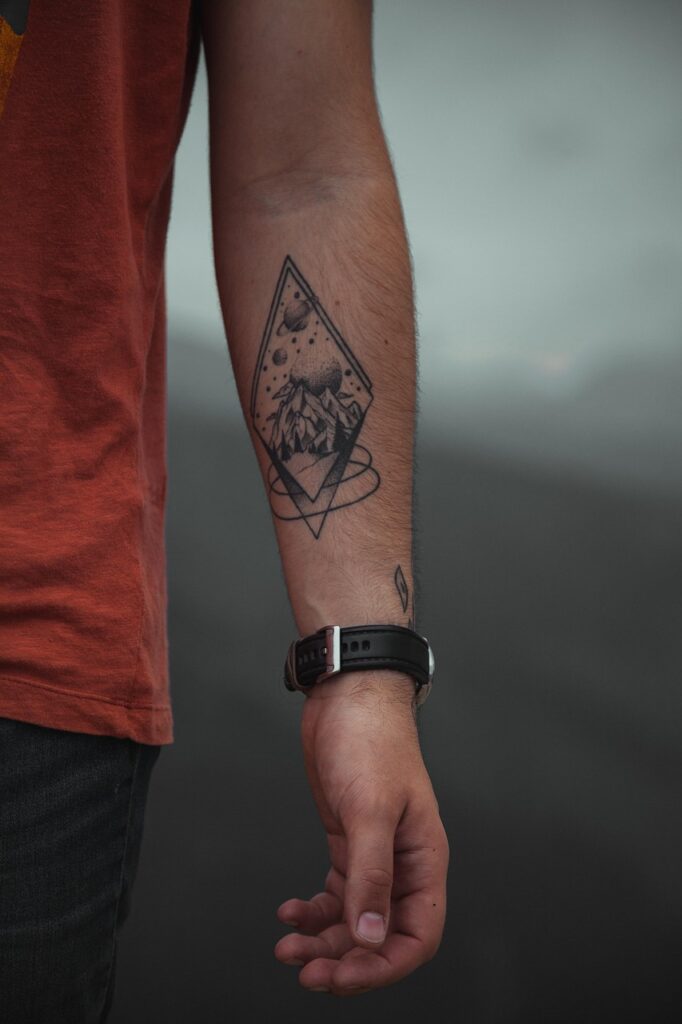
7. **Falling for Fleeting Trends Instead of Timeless Style**Trends are a wild ride, aren’t they? One minute everyone’s got tiny minimalist stars, the next it’s full-blown maximalist sleeves. But when it comes to tattoos, chasing a trend can often lead to chasing a laser removal appointment later on. Getting a tattoo based on what’s popular or what your friends are doing is a classic recipe for regret. Trends are transient, and what’s fashionable today can feel seriously dated or even embarrassing tomorrow.
The context explicitly mentions Tyler’s great advice: “make sure you’re doing it for you and not because it’s a current style or trend.” This sentiment is echoed throughout discussions on tattoo regret. If your motivation is primarily external validation—to impress others, to fit in with a certain group, or to follow a passing fad—the perceived value of that tattoo can diminish significantly once that group or social dynamic changes. It’s the difference between choosing something because it genuinely speaks to *you* versus choosing it because it’s what everyone else is doing.
Sure, a trendy tattoo might get you some likes on social media for a bit, but is it going to bring you joy in ten or twenty years? Probably not. The permanence of ink means that a design tied to a specific, fleeting cultural moment can quickly become a relic you’d rather forget. For example, some symbols cause more regret than others: people were less likely to regret inking the moon, Celtic symbols or Roman numerals, but tribal designs, hearts, or roses were frequently mentioned as more regrettable content. Choosing a timeless design that reflects your core self, rather than a temporary trend, is a much safer bet for lasting tattoo happiness.” , “_words_section1”: “1948
Read more about: From Cool to Cringe: 15 Iconic Cars That Have Sadly Lost Their Shine and Now Make Us Wince
8. **Choosing the Wrong Artist or Shop**Your tattoo is more than just a picture; it’s a permanent piece of art etched onto your skin. And guess what? The person wielding that needle is literally the make-or-break factor for your tattoo’s entire life! Yet, so many folks rush into choosing an artist based on the quickest appointment or the cheapest price, completely overlooking the crucial step of actually *researching* their talent and reputation. This, my friends, is a rookie mistake that can haunt you for years.
When you’re scouting for your next ink guru, don’t just glance at a few photos. Dive deep into their portfolio, and I mean *really* look. You want to see clean lines, smooth shading, and consistent quality across different tattoo styles. Crucially, pay extra attention to pictures of *healed* tattoos, not just the fresh ones glowing under studio lights. A fresh tattoo can hide imperfections that only become glaringly obvious once it’s settled into your skin. Social media is great, but it’s just the starting line; dig deeper!
Before you commit, take a stroll down to the actual tattoo parlor. A truly reputable shop isn’t afraid to show off its hygiene standards, boasting proper sterilization equipment and clearly displayed, up-to-date health department licenses. The staff should be super professional, welcoming, and totally open to answering all your burning questions about their safety protocols and creative processes. If a place feels off or gives you weird vibes, trust your gut and walk away.
Finally, ensure your chosen artist is a perfect match for *your* specific tattoo style. An artist who is a master of traditional American tattoos might not be the best pick for a hyper-realistic portrait. Don’t be shy about asking for references from past clients, or at least scour multiple online review platforms. This isn’t just a transaction; it’s a partnership to create art, so you want to feel totally confident in their hands.
Read more about: The Most Divisive Styles: 14 Controversial Fashion Trends People Can’t Stop Wearing in 2024
9. **Rushing Your Design Decision (Beyond Just Impulsivity)**We touched on impulsive decisions in Section 1, but let’s get real: rushing the *design* decision itself, even if it feels thoughtful at the time, is another fast track to regret. Your tattoo is going to be with you for the long haul, way longer than that fleeting emotion or the cool trend that sparked the idea. The permanence of ink means that what seems like a good idea today might not be as appealing decades from now, especially if the design is very trendy or time-specific.
So, here’s a pro-tip straight from the “think before you ink” playbook: *live* with your design idea for a while. Print it out, slap it on your bathroom mirror, or stick it on your fridge. See it daily for at least a few weeks – or better yet, a few months, as one survey takeaway suggested. If that initial surge of excitement holds strong and you still adore it after all that time, then congratulations, you’re likely making a genuinely solid choice that will stand the test of time.
It’s also super important to chat with your artist about how your chosen design will gracefully age. Think about it: thin lines might blur and merge over the years, and intricate, highly detailed work could lose its crisp clarity as your skin naturally changes. A skilled artist can give you invaluable advice on design modifications, suggesting tweaks that will ensure your tattoo looks absolutely fantastic not just on day one, but for many, many decades to come.
And don’t forget the placement puzzle! A design that looks absolutely epic stretched across your forearm might not translate quite so perfectly onto, say, your shoulder blade, due to the different contours, canvas shape, and natural movement of your body. These are the nuances that can make or break your long-term love affair with your ink, so consider how it will interact with your body’s natural contours and your daily life.
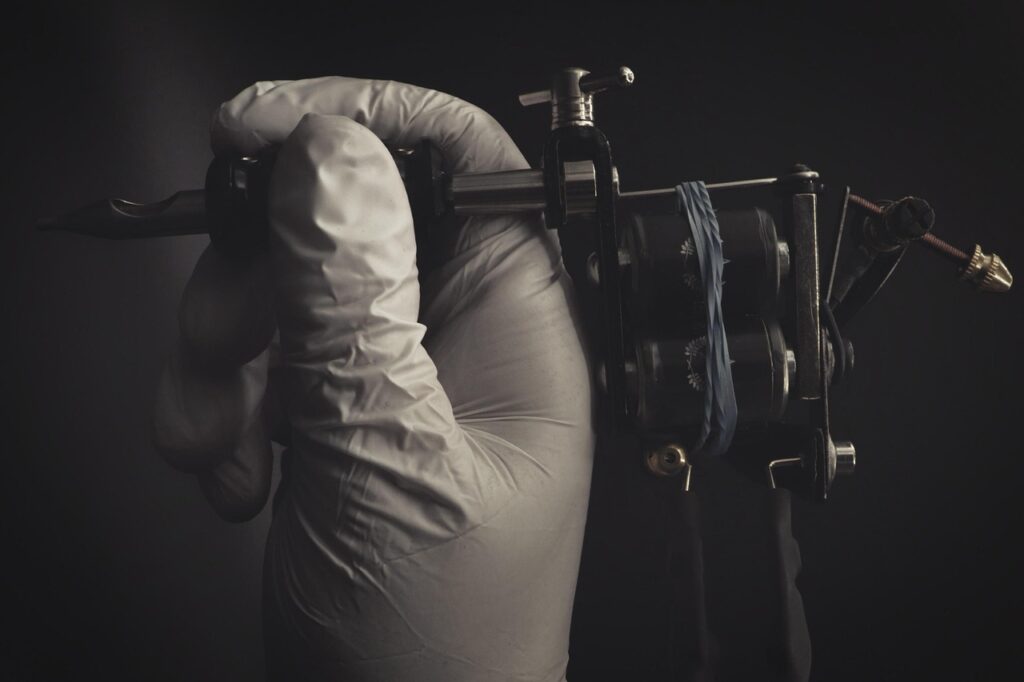
10. **Ignoring Proper Aftercare Instructions**You’ve done the research, found the perfect artist, endured the needle – congratulations! But hold up, the journey isn’t over. One of the most critical, yet frequently ignored, steps in getting a tattoo is following proper aftercare instructions. It’s like buying a fancy new car and then never changing the oil. This seemingly minor oversight is a huge mistake that can lead to infections, uneven healing, and ultimately, a permanently damaged, faded, or blurry piece of artwork.
Your tattoo artist isn’t just giving you a polite suggestion when they hand you those aftercare guidelines; they’re giving you the blueprint for a healthy, vibrant tattoo. This typically involves a strict regimen of keeping the tattoo meticulously clean, ensuring it’s moisturized with a recommended product, diligently avoiding direct sun exposure (seriously, wear sunscreen even *after* it’s healed!), and resisting that oh-so-tempting urge to pick at any scabs or peeling skin. Every artist might have slightly different recommendations based on their experience and preferred products, so listen up!
And while we’re on the subject of what *not* to do, let’s talk about water. Specifically, standing water. You absolutely need to steer clear of swimming pools, bubbling hot tubs, and relaxing long baths until your tattoo is completely and utterly healed. These environments are teeming with bacteria, just waiting for an open wound (which your fresh tattoo essentially is) to cause a serious, nasty infection. Quick showers? Totally fine. Letting the showerhead blast directly onto your new ink for ages? Not so much.
Keep a hawk-eye out for any tell-tale signs of infection. While a bit of redness, swelling, or warmth is completely normal in the immediate aftermath of getting inked, persistent or worsening symptoms – like excessive discharge, increasing pain, or fever – are huge red flags. If you notice any of these, don’t play doctor; seek immediate medical attention. Your health, and your tattoo’s longevity, depend on it!

11. **Getting Tattooed While Under the Influence**Picture this: you’re hyped for new ink, maybe a little nervous, and someone suggests a “liquid courage” shot or two to help you relax. Stop right there! Alcohol and drugs are an absolute no-go when you’re getting tattooed. Despite the common misconception that a few drinks will magically ease the pain, this approach creates a whole cocktail of problems that can seriously mess up your experience, your healing, and ultimately, the quality of your cherished artwork.
First off, let’s talk biology. Alcohol, the sneaky little devil, thins your blood. What does that mean for a tattoo? Excessive bleeding during the tattooing process. This isn’t just a minor inconvenience; it makes it incredibly difficult for your artist to see what they’re doing clearly, leading to compromised line work and poor ink saturation. Plus, with thinner blood, you’re going to heal much more slowly, and you might even lose more ink during that critical healing period, resulting in a faded or patchy tattoo.
Beyond the physical effects, being under the influence totally impairs your judgment. You might find yourself agreeing to design changes you’d never consider sober, or you could completely fail to communicate vital concerns to your artist. Many reputable tattoo parlors have a strict policy against tattooing visibly intoxicated clients – and for good reason! They’re not being killjoys; they’re protecting you, themselves, and the quality of the art.
And here’s the kicker: that belief that alcohol helps with pain? Totally busted. Alcohol consumption actually *decreases* your pain tolerance. So, instead of making the experience easier, you’re likely making it more uncomfortable and potentially prolonging the session. Skip the booze, save the party for *after* your tattoo is safely wrapped up, and embrace deep breathing techniques instead!
Read more about: 12 Once-Cool Rides That Now Make Us Cringe: An Unflinching Look at Automotive Disappointment and Design Gone Wrong
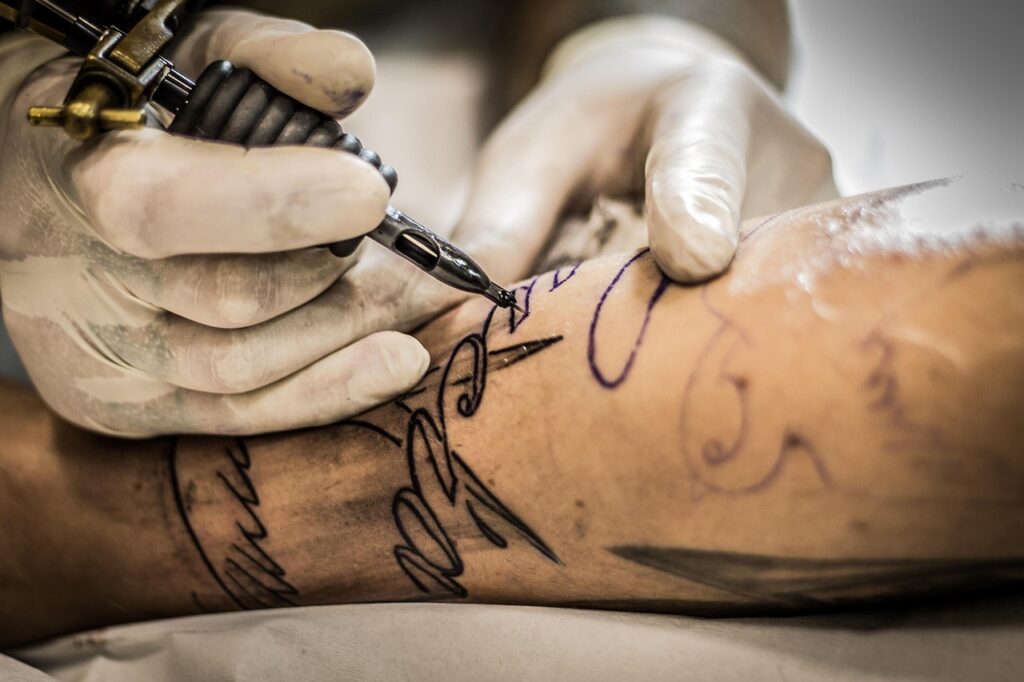
12. **Underestimating the Importance of Tattoo Size**Okay, so we’ve talked about design, artist, and aftercare, but here’s a plot twist you might not see coming: size actually matters when it comes to tattoo regret! You’d think a small, discreet tattoo would be less risky, right? Well, apparently, the opposite is true. According to surveys, the smaller your tattoo, the *more* likely you are to regret it. Mind blown, right?
Let’s dive into the stats, because they’re pretty wild. We found that a whopping 63 percent of people with a tattoo smaller than the palm of their hand admitted to regretting it. Now, compare that to the folks sporting full-sleeves or even longer pieces: only 2 percent of them reported regret. That’s a massive difference, and it really makes you scratch your head and wonder why.
One strong theory is that smaller tattoos are often more impulsive, requiring less thought and commitment. It’s easier, and faster, to get a tiny star on your shoulder than it is to go full-on Travis Barker with an elaborate, extensive piece. The sheer scale of a larger tattoo naturally demands more planning, more conversations with your artist, and a much deeper dive into whether this is truly what you want for life.
So, while that cute little minimalist design might seem like a low-risk entry into the world of ink, remember that it could ironically carry a higher risk of regret down the line. Perhaps the bigger the commitment, the more carefully considered the decision, and thus, the less room for future ‘oops’ moments. It’s a fascinating paradox of permanence!
13. **Neglecting Long-Term Maintenance and Aging**Here’s a truth bomb about tattoos: they’re not static works of art that look exactly the same from the day you get them until, well, forever. Just like us, tattoos age. They fade, they blur, and their crispness can soften over time. This natural process is often overlooked by people who get inked, leading to disappointment when their once-vibrant masterpiece starts looking a little, shall we say, “experienced.” Understanding this reality and preparing for it is key to sustained satisfaction.
The daily grind, friction from clothing, and especially relentless sun exposure are all major culprits in the aging process of your ink. Think of your tattoo like a beloved painting; you wouldn’t hang it in direct sunlight without protection, right? Diligent sun protection is absolutely non-negotiable for preserving your tattoo’s vibrancy. Regular moisturizing also plays a role in keeping the skin healthy and the ink looking its best for longer.
Different ink colors and line work can also age in their own unique ways. Vibrant hues, particularly lighter ones, might require touch-ups more frequently than robust black and grey pieces to maintain their punch. Similarly, those super-fine lines that looked so delicate on day one can become less defined over decades. Being aware of these nuances helps manage expectations and allows you to appreciate your tattoo as it matures, rather than feeling let down.
Ultimately, a tattoo that is well-maintained – protected from excessive sun, moisturized, and perhaps given an occasional touch-up by your artist – will retain its aesthetic appeal for a much longer time. This proactive approach to care is a practical aspect that significantly contributes to your ongoing appreciation of your body art, ensuring it remains something you cherish rather than a source of “ugh, remember that?”
Read more about: Unmasking the Hidden Costs: Why These Seemingly Cheap Car Hacks Could Be Draining Your Wallet

14. **The Path to Peace: Coping with Regret (Cover-ups, Removal & Reframing)**So, you’ve found yourself in the tattoo regret club. Hey, it happens! While it can feel disheartening, remember this isn’t a life sentence of unhappiness. The good news is, there are some seriously effective strategies for coping with and even completely overcoming that dissatisfaction. The first step? Acknowledge how you feel, permit yourself to wait it out, and know you are absolutely not alone in this experience. Now, let’s explore your options.
First up, **cover-up tattoos**! This is a truly creative and artistic solution for ink you’ve fallen out of love with. A skilled tattoo artist can work magic, designing a brand-new piece right over the old one, expertly using the existing lines and colors as a foundation. It’s like giving your skin a second chance at an artistic life, transforming something you regret into a piece you genuinely adore. Finding an artist who specializes in cover-ups is crucial for the best, most seamless transformation.
If a cover-up isn’t quite your vibe, or if the tattoo is just too dark or dense, **laser tattoo removal** steps into the spotlight. This is a more direct approach, using advanced laser technology to break down those ink particles into tiny fragments, which your body then gradually clears away. It typically requires multiple sessions, can be a bit painful, and yes, it can be costly. But for many, it’s a worthwhile investment to completely erase the past, especially if the tattoo is causing extreme anxiety or depression.
Sometimes, the most powerful transformation happens not on your skin, but in your mind. **Reframing the meaning** of your tattoo can be incredibly liberating. Instead of fixating on what it represents now (or what you regret), try to view it as a symbol of a past experience, a lesson learned, or a testament to your personal growth and resilience. This psychological shift allows you to detach those negative emotions and integrate the tattoo into your life story in a way that feels empowering, turning a source of regret into a symbol of your journey.
Finally, for those who are ready to fully embrace their evolving identity, **getting new ink** that genuinely reflects your current self can be an incredibly empowering act. It’s about reclaiming your body as your canvas and asserting who you are today. Whether these new pieces complement, contrast, or intentionally draw attention away from an older, less loved tattoo, they can help shift your focus and curate your body into a gallery that truly celebrates your unique, evolving story.
***
Phew! What a journey, right? From youthful impulsivity to the unexpected pitfalls of aftercare, and everything in between, we’ve explored the wild world of tattoo regret. It’s clear that while tattoos are incredible forms of self-expression and deeply personal art, the path to lasting love for your ink isn’t always straightforward. But here’s the most important takeaway: you’re not stuck! Whether you’re carefully planning your next masterpiece or staring down a past mistake, there are always options. Think of your body as a constantly evolving canvas, reflecting every twist and turn of your life. So, take a breath, be kind to yourself, and remember that with a little thought, care, and sometimes, a little help, you can make peace with your ink and continue to rock your story, one beautiful, unique tattoo at a time. Go forth and ink wisely!

